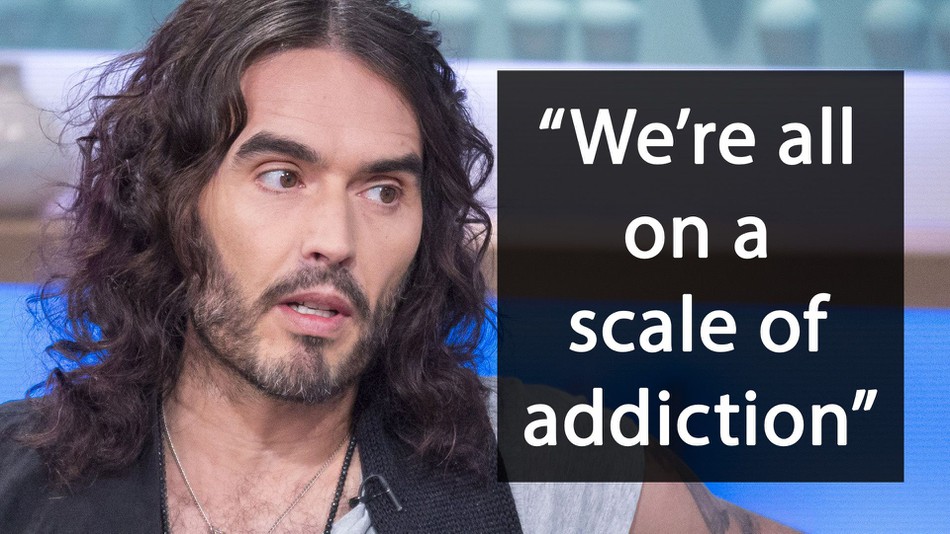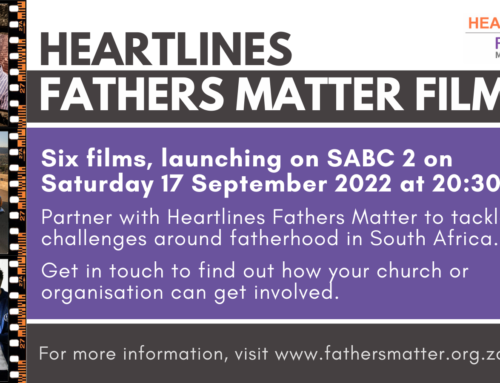i have now finally finished reading Russell Brand’s latest book, ‘Recovery – Freedom from our Addictions’ and can highly recommend it. Whether you feel like you are addicted or not. There is a helpful understanding that is gained around addicts who might be people you know, as well as just some generally helpful life wisdom from a very unique perspective. Russell Brand is not everyone’s cup of tea, but you are doing yourself a disservice if you dismiss everything he has to say here. There is some very good stuff.
Some of the stuff i have already shared in this post and this post and this will be the last, because you really should just go and get the book already. But if you want some more encouragement to go and do so, here are some more of the passages that jumped out at me and made me fold that particular page [Yes, i’m a folder – get over it, the tree has already passed on!]
= = = = = = = = = =
This piece is an incredible passage on a way of looking at Forgiveness:
‘Looking at my own life it is clear how greatly I have erred. How can I expect forgiveness if I am unwilling to forgive? What of the few incidents in my childhood where I was transgressed against sexually? Do I have to ransack these events mentally, looking for novel ways to blame myself? Of course not, this is an opportunity though to amend my perception of those events and improve my life as a result. It is, of course, wrong that I was touched up by a man when I was seven years old and when looking at my part I am not seeking to minimize his responsibility. What I am doing is releasing myself from the pain I have been unconsciously carrying. So I don’t have to say, like some awful eighties judge, that I was a terrible little flirt and brought it on myself, that would, of course, be nuts. What I can do is accept that this event happened, that it was not my fault, that it is over and it is not happening now and not to allow it to continue to block my path to mental and spiritual clarity. By forgiving the perpetrator, I release myself. I can revise the event. I can see it as something that gives me more compassion and understanding. I can let go of it. There is no benefit to establishing an imaginary judicial system in my own mind where I carry out punishments to people who have wronged me. By letting go of this long-held inner drama I become a little more liberated and useful. In essence, it’s bad that it happened but it’s wrong that I allow myself to be affected by it now. I cannot control the past, but I can control the present through forgiveness.
I have heard beautiful stories of forgiveness and its eminence in the spiritual life is often testified to. I have heard of mothers forgiving their son’s murderer, befriending the killer, learning to understand and love the person that has cost them so dearly, knowing that there is no freedom without forgiveness. In the prayer of Saint Francis, he says, ‘It is by forgiving that we are forgiven,’ and this means I suppose that there is a direct connection between the clemency we express and the world that we experience. That old school staple, The Lord’s Prayer, says, ‘Forgive us our trespasses as we forgive those who trespass against us.’ Freedom has a clause: it is forgiveness. Or as Gandhi would have it, ‘Be the change you want to see in the world.’ If we want forgiveness, we must forgive.’
= = = = = = = = = =
‘In active addiction I am disconnected. That is one of the defining characteristics of this condition. I look to reconnect, to recalibrate, by using drug, alcohol, technology, sex, food, domination or some other external stimulant. This is an individualistic and egocentric way to be, the horizon of my inner life made up only of objects to pursue for personal fulfillment. In Step 11 a large part of my life becomes prayer and meditation. This means I am detaching myself from external activity and seeking a different kind of connection.
To put this in the everyday, I often wake up and immediately feel, before even opening my eyes, kind of glum and anxious and deficient. One negative thought can quickly follow another. I have to intervene in this process. I do it through prayer:
‘God, I humbly ask that You direct my thinking today, show me how I can be useful to the addicts who still suffer. Show me how I can be of service, how I can be patient, tolerant and kind.’
Even in writing this now I can inwardly wince at the sincerity. I am accustomed to irony, distance and intellectualism. I am a product of my age and culture. To approach the intention of the prayer, or syntactic inner code reset, if that language is more up your alley, I see that its content is the exact opposite of my tendency when active in addiction. ‘God, I humbly ask that You direct my thinking today’ – ‘There is no God, there’s just me and my needs and my feelings and I bet they don’t get met. Humbly? Fuck that! I’ll be crushed. Be useful to others? Screw them. You make your own luck in this world, do it to them before they do it to you, in the words of Terry Molloy.’ Patience, tolerance and kindness do not come easily to me until I retune my mind, and that’s what prayer is. Never mind all the wailing, genuflecting and beseeching, unless that’s your thing, I suppose. And why not? Embrace the theatre. What I need is to guide my consciousness away from patterns of thought that are deeply ingrained, unproductive and painful. The meditation part of the equation is deeply necessary, otherwise, I spend all day engaged in the world and its people and opinions. I enjoy having a quiet space inside myself in which peace and serenity are not contingent on the behaviour of others. This step obviously contains a caveat, ‘praying only for God’s will for us and the power to carry it out.’ Prayer will be of little use to me if I summon the power of the spheres and dark matter simply to get myself a new bicycle. Use this new relationship with higher consciousness to acquire the commodity we all need, especially if we are unaware of it: purpose.’
= = = = = = = = = =
‘Prayer is, for me, a setting of intention. ‘Praying only for God’s will for us and the power to carry it out’ – this I feel is to guard against the temptation to regard your Higher Power as a cosmic Father Christmas, with nothing better to do than conjure you up a new girlfriend. It also is the acknowledgment that in our former state, prior to reprogramming our mind, the needs of the ego were paramount. The ego tells me that I need a new, better girlfriend; I, its ever-willing lackey, go out and get one. The ego tells me that I need to pursue fame and fortune; I go tripping out the door in a top hat and spats. This reminds us that the demands of the ego will never lead to anything other than suffering. Desire is suffering. We are free though to relinquish these petty, trivial desires and attune to a new frequency where our life has greater purpose than, ‘ I wonder how I’d look in a new hat?’
Then a little later in the same chapter, talking about meditation:
‘I continue for about twenty minutes, hopefully during this time the incessant inner commentary stops and an all-encompassing peace prevails. This takes practice. Be patient and don’t judge yourself.
I ask for gratitude and ways that I can demonstrate it to others. I ask for courage and ways I can demonstrate it. I ask that I be healing to those I encounter. I ask that I see the ‘signs’ that occur throughout the day that will guide me to my Higher Self, my Best Action. I ask that the thoughts and actions and consciousness that come to me be from a Higher Source.
= = = = = = = = = =
There you have it… just three solid glimpses into some of the wisdom and practice of a man who has gone through various different addictions to quite extreme levels and has found a way to find peace and himself and even possible God, or some idea of God.
Russell Brand’s ‘Recovery – Freedom from our Addictions’ is definitely a journey i would recommend and i feel like i learnt a lot and was challenged and gifted with some practices and mindsets that are proving helpful.







[…] [To continue to the final part of this series, click here] […]